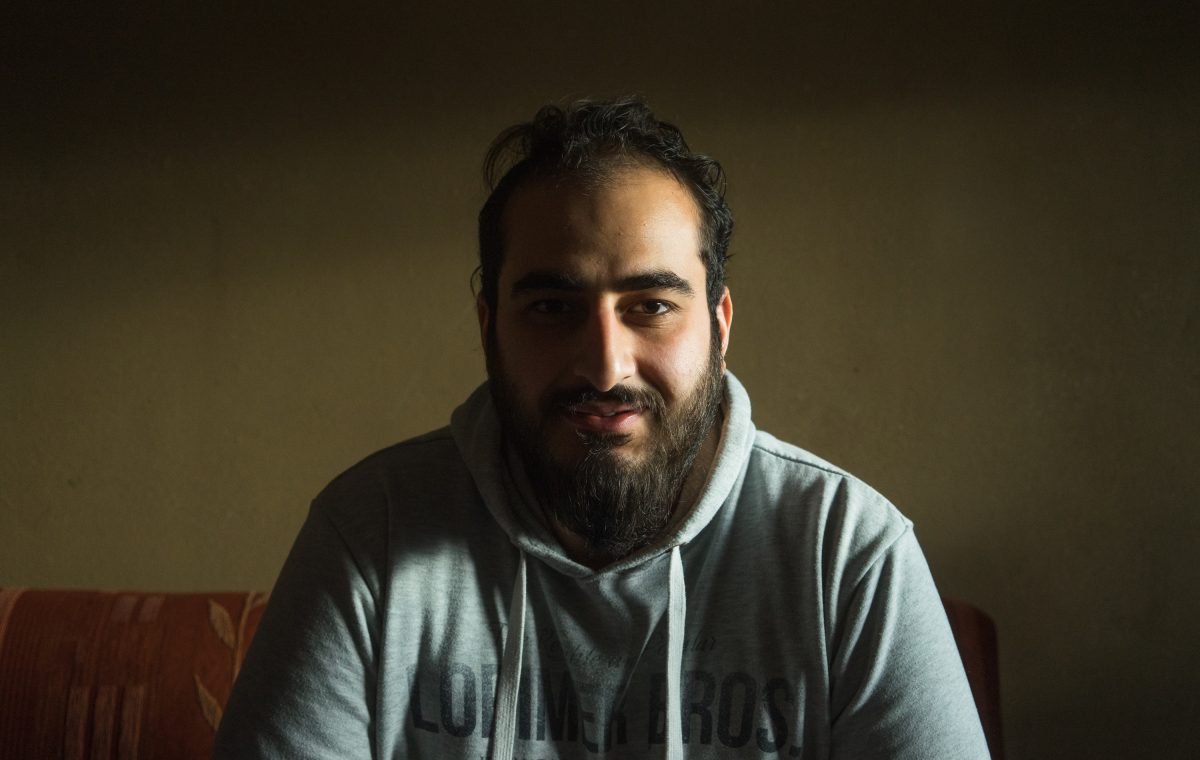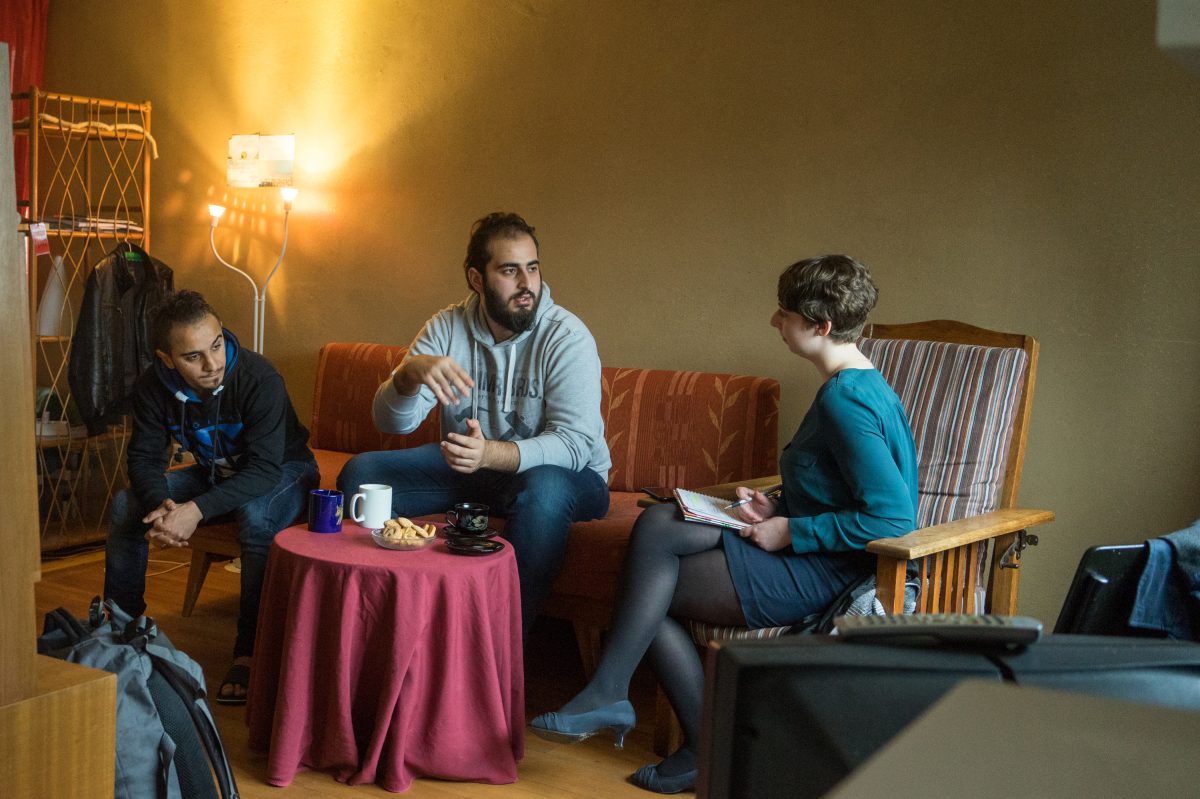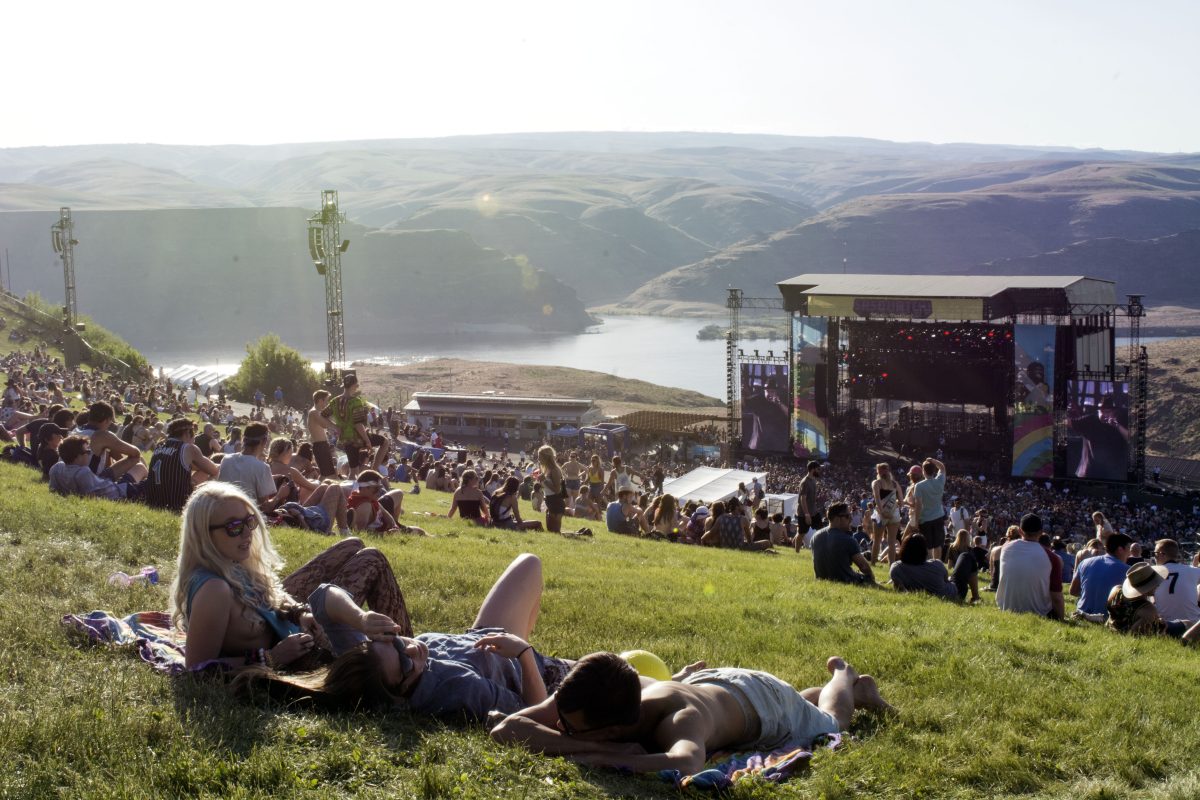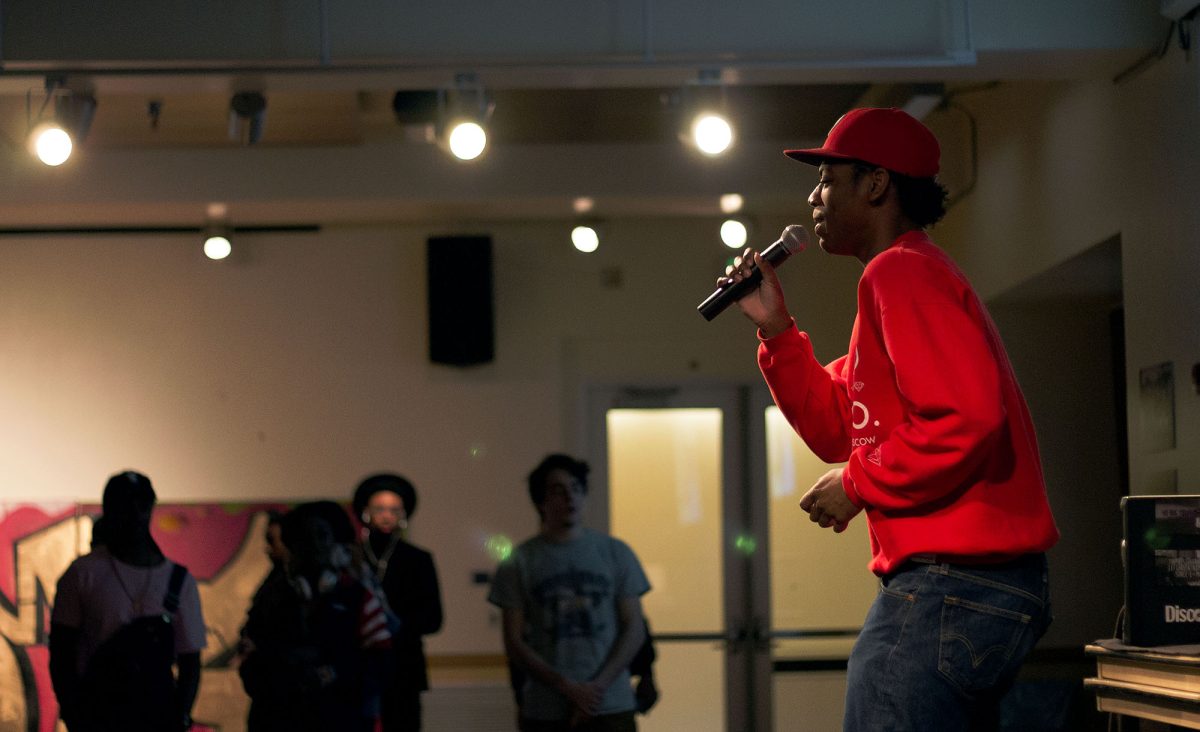Words by Aliya Hall, Photos by Massimiliano Laier
STUTTGART, Germany – Although people from war-stricken countries seeking asylum isn’t new, the conversation regarding refugees has become more prominent throughout this past year, as the threat of the so-called Islamic State has grown and with the war in Syria continuing. Germany has now become a leading country of accepting these displaced persons.
Last year alone, Germany has accepted over 1.5 million refugees into their country, according to the United Nation High Commissioner for Refugees (UNHCR), where they had been given full refugee status, which includes the right to stay in Germany for at least three years, bring family members, and receive welfare benefits. However, since November, the German Interior Ministry announced that they have stopped granting full refugee status, which only allows the incoming refugees to stay for a year, without family members, and receive a “subsidiary protection.” Although Germany is still accepting refugees, lawmakers are attempting to put daily quotas in place, as other countries have already done. These quotas, along with countries closing their borders, creates a bottleneck situation— especially with new refugees arriving each day.
With the number of refugees in Europe well over the one million mark, it can be hard to place a face to each number, but each number is in fact a person with a story, and these are just a few of the many stories that these people have.
Doris Okojie:
Doris Okojie is a Nigerian Refugee who has been living in Germany for almost two years. She says she knew since the day she was born that she wanted to leave Africa. She never liked it, and after watching movies about “the white people and the way they lived” Okojie realized she wanted more.
“That is how life is supposed to be. Not like this,” she says.
She says that Nigeria is always in a crisis, but it’s never talked about in the media. There is no government control and a lack of food and water. Those with money have a well in order to get fresh water, but the rest have to buy it. Most of the food comes from Northern Africa, and if relations between the Muslims and Christians are bad, it can be hard to get food.
“That is just Africa,” Okojie explains.
When Okojie decided to leave, she says that she took the more dangerous route— through the Libyan desert.
“It took me a lot of time–almost took my life. It was very hard. A lot of sand, no trees, nothing. The weather was so hot. No water. I was suffering. We had to drink our urine because there was no water. When you pee, you had to drink it to survive,” she says.
After the fourth day in the desert, they were discovered, and because of the religious divide, Okojie and her group were moved from prison to prison. There, she said some were being beaten and dying.
“That’s why I say I’m lucky,” Okojie says.
Okojie stayed in the desert for three months, where she described herself as “living like an ancient person” until she was able to take a boat to Malta, where she lived for seven years, and had her two children, Donia and Bradley. When she began to experience domestic violence, she chose to flee to Germany.
“I need the best for my kids like I need the best for myself. So, I come to Germany. We have future here. I don’t care for my future because I’m no longer a kid, but I care for my children’s future,” says Okojie.
From Malta, Okojie and her children stayed with a friend in Italy before taking the train to Germany. She had all of her documents, therefore it wasn’t a problem to get into the country. She has since been living at a refugee center outside of Stuttgart, where she spends most of her time taking care of Bradley, who needs special care. She’s hoping to find a job as soon as Donia is in kindergarten, and to continue learning the German language. She prays that the government grants her request to continue living in Germany.
“I believe if I go back, you just want to punish me and the kids. They don’t have a future back there. The country doesn’t care. Here you feel like you’re in heaven, and from heaven they take you back to hell. That is how it is,” Okojie says.
Hosam Helwah and Mohammed Saleh:
Hosam Helwah and Mohammed Saleh are two Syrian refugees who arrived in Germany this past year. Their country has been in war for five years, after a revolution that was inspired to bring freedom.
“[It’s] terrible. We see in the media on the TV, they kill everyone. They fight each other. We don’t have one group, we have 100 groups fighting each other. A lot of people die everyday, for not having food, from bombs, and airplanes,” says Helwah.
After Helwah graduated in 2011 he was forced to join the army, while Saleh chose to take part in the revolution, which made him a target for house visits from the police until he escaped to Sudan in 2012.
The two men had different experiences traveling to Germany. For Helwah it was easy to fly out of Libya, but the decision to leave his family was the hardest part of the journey.
“Maybe when I run away, I don’t know if I can see them again or not. Maybe if I stay there, someone will kill me,” he says. “This is a big step for me to run away and keep my mother and family in Syria—that is not easy.”
Saleh had to pay off the police who wanted him, and when he came to Europe had to move between Italy and France before eventually having the chance to come to Germany. His mother and sister are both still in Sudan, and he has not had any contact with his father in over a year, and doesn’t know whether he is alive or not. Despite all the hardships, Saleh is happy he can have this new life in Germany.
“I feel that people in Germany feel what the war makes in life. I feel good when I come to person who feel how I feel about war, about everything,” Saleh says.
For Helwah, the choice to come to Germany was an economic one. A friend of his told him that there were job opportunities available for him there.
“[That is] one of most important things for me. I want to work, I don’t want to stay at home,” he says.
Both Helwah and Saleh were sent to Karlsruhe when they arrived in Germany, to be later transferred to a small village on the outskirts of Reutlingen, where they are now both living.
Although they say most of their experiences with Germans have been good, there has been some cause for concern over how situations regarding refugees have been handled, especially in light of the New Years’ attacks in both Köln and Stuttgart.
“What happened in Köln, it wasn’t people from Syria. The police says it was people from Egypt and Morocco. They come here and say they are from Syria. I saw an African man say he was from Damascus,” Saleh explains.
Although Helwah hasn’t encountered any negativity firsthand, he told a story of his brother who during a fight with another refugee was pushed into glass that broke into his back. When the police came to the scene and realized it was a fight between refugees they didn’t do anything about it.
“The refugees here aren’t just one nationality or culture. If someone makes a problem it’s hard to catch them and put them in jail or transfer [them back] into their home country. We know it’s not easy. The police won’t do anything about it, it’s not good for Germany or for us,” he says.
Saleh admits that there are certain refugees who make problems for beyond that reason. When a refugee won’t be granted a long stay in Germany, they feel they can do whatever they want, and that makes life harder for refugees like him and Helwah who are granted permission to stay.
Helwah and Saleh say this gives them a chance to have a new life, and unlike most of the other Syrian refugees, they don’t miss anything back in Syria. Helwah says that most of them want to go back and start rebuilding, but he thinks it will need more time, at minimum, ten years.
“My hope is to have peace in Syria and in Germany,” he says, “We [Syrians] hope that. But it’s not coming.”
Since the beginning of 2016, there have been 82,636 more people traveling to Europe from sea, according to the UNHCR, and the number is only getting higher. These four refugees have or were given a chance by Germany to restart their lives, and they are thankful for that opportunity, but they aren’t going to forget who they are or where they have come from.
“We come here to escape from war and have good life,” Saleh says. “It’s a good step for us, but we should not forget our country. I respect you because you respect me because I am refugee. You can’t judge about me before you meet me, and see what’s in my mind.”
Categories:
Faces of a Crisis: Germany’s refugees
April 15, 2016
Faces of a Crisis: Germany’s refugees
0
More to Discover















